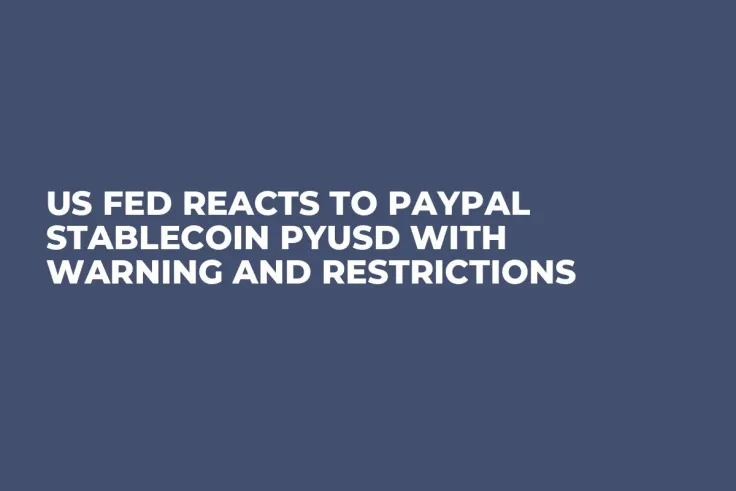
In an unexpected move, the U.S. Federal Reserve has intensified its regulatory scrutiny of the crypto sector, issuing a stern warning specifically targeted at banks. The move comes as part of the Fed's broader efforts to tighten oversight on all things crypto, reports ex-SEC official John Reed Stark.
Under its newly established program, the Federal Reserve is requiring state banks within the system to obtain a written supervisory nonobjection before engaging in any issuance, holding or transaction involving dollar tokens meant for facilitating payments, such as PayPal's newly launched PYUSD stablecoin.
Banking Regulators Issue a Stern Warning to Any Bank Doing Business with PayPal, Continuing An Unprecedented Financial Regulatory Onslaught Against All Things Crypto.
— John Reed Stark (@JohnReedStark) August 10, 2023
The Federal Reserve just issued yet another announcement relating to any bank that has anything to do with the… pic.twitter.com/twfrsTBhi5
These new guidelines pose a considerable challenge for banks, as they must demonstrate their ability to identify, measure and control the associated risks, from money laundering to cybersecurity vulnerabilities. Furthermore, the Federal Reserve will scrutinize a bank's capacity to manage substantial redemptions in a short time frame and its cybersecurity infrastructure.
Good or bad?
The program extends to blockchain technology and nonbank partnerships in a bid to fortify the oversight of tech-driven financial activities. The Fed's primary goal is to balance financial innovation with effective risk management, thereby safeguarding the integrity of the banking system, says Stark.
The initiative aligns with the January policy statement aimed at ensuring uniformity in crypto-related restrictions for all Fed-supervised banks. This endeavor mirrors similar sentiment of other regulatory bodies like the FDIC and the OCC, which have also increased their engagement in regulating crypto activities by financial institutions.
As things stand, the institutions venturing into the crypto industry, like PayPal with its PYUSD stablecoin, will need to navigate a rigorous regulatory gauntlet to ensure compliance and engender the trust of regulators and consumers alike.


 Denys Serhiichuk
Denys Serhiichuk Gamza Khanzadaev
Gamza Khanzadaev